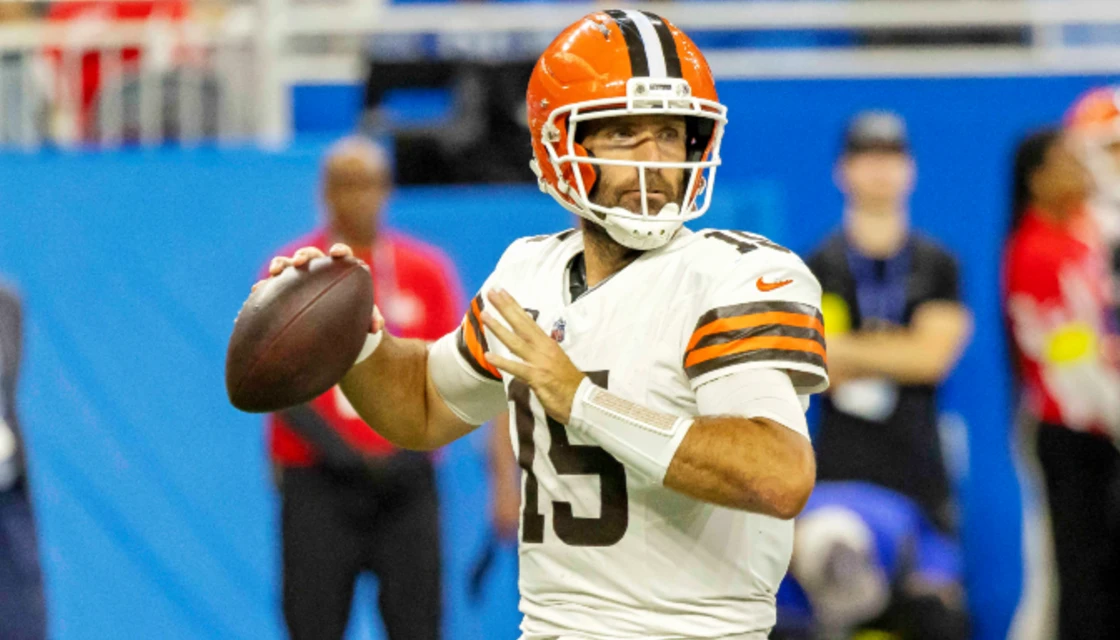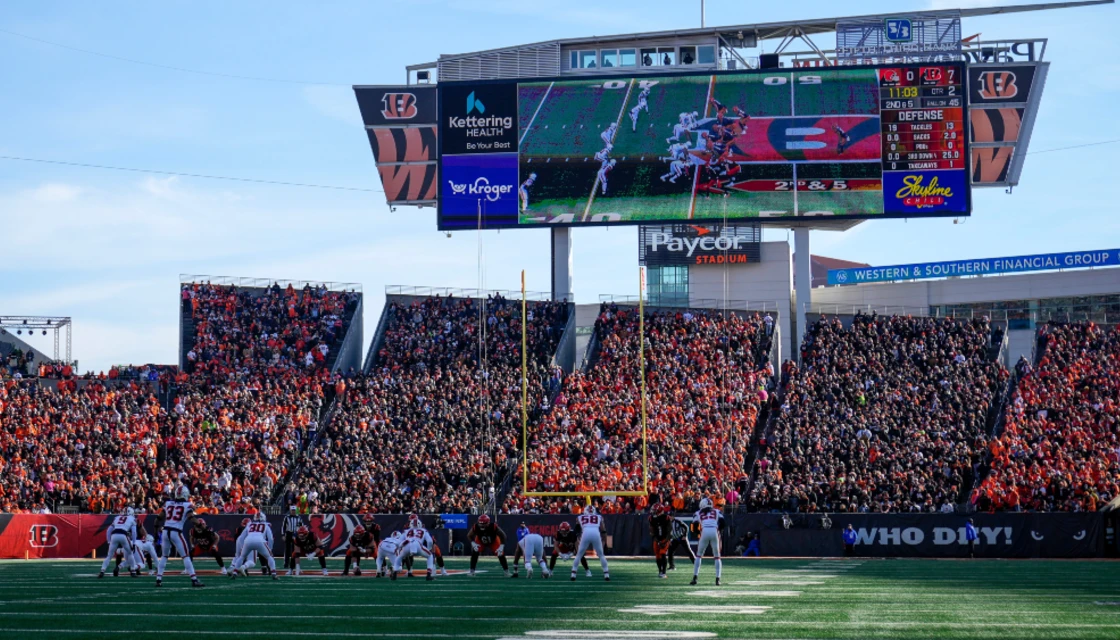PITTSBURGH – In less than a month, the number of active online Ohio sports betting apps has shrunk by more than 20%.
In late June, Tipico closed down after agreeing to sell its U.S. assets to MGM Resorts International. On July 10, Betway’s parent company announced it would stop taking sports wagers in Ohio and eight other states where it was licensed. Then on July 19, SuperBook said it would end its operations outside of Nevada. Betfred decided to close its Buckeye State app at the end of August after making a similar decision in June for its Maryland business.
Those four Ohio sportsbooks operators made up a small piece of the state’s monthly handle and revenue totals. But their departures in one of the country’s biggest markets are still noticeable.
This isn’t the first time a sports betting state has seen multiple sports betting apps fall by the wayside in a short period and – technically speaking – it’s not the first time for Ohio, either. In late 2022, as state regulators conducted their licensing process, Fubo Sportsbook and MaximBet, both of which had signed partnerships for market access, ceased operations.
Still, for some in the industry, the demise of so many companies in such a small window raises cause for concern. However, there might not be many options to combat it.
Industry Consultant: Contraction ‘Inevitable’
When the first wagers were taken in January 2023, there were 16 Ohio online sports betting apps. The roster grew to 19 with the additions of Fanatics, Parx Interactive and Prime Sports. After Betfred ends operations, the state will have 15 operators, many of which offer Ohio sportsbook promo codes.
What’s happening in Ohio and other states where smaller operators have pulled up stakes doesn’t come as a shock to Bryan Bennett. He was Betfred’s U.S. COO and helped it expand its American operations, including Ohio; he has since become an industry consultant and advisor. His comments to BetOhio pertain to the industry in general and not any particular operator.
Bennett said Monday that there is a common denominator for what’s happening in states such as Arizona, Colorado, Indiana and Ohio. Each of those states had (or still has) more than a dozen online sports betting operators at one. Each has seen smaller companies depart.
“I now believe that this was inevitable without iGaming,” he explained. “That’s probably not earth-shattering news to some industry experts, and it’s not a complete surprise to me, but the current economics in sports betting-only states just don’t work for Tier 2 (smaller) operators.”
“The only Tier 2s that have had sustained success are those in iGaming states. Given the lead that DraftKings and FanDuel have, along with a handful of contenders, I just don’t see a way for Tier 2s to cut through the noise long-term.”
See more about the Ohio iGaming outlook here.
Smaller operators aren’t moving out simply because they’re being outspent by larger companies that can offer more lucrative promotions to attract and retain bettors. That’s part of it, but Bennett said the current state of the “highly fragmented” U.S. industry requires operators to pay more for compliance, licensing and technological infrastructure. That’s where iGaming, a more lucrative product, would help keep the smaller operators afloat.
While Betway is closing its sportsbooks, its parent company said it would keep its online casino apps running in New Jersey and Pennsylvania.
State lawmakers interviewed by BetOhio last week said they do not expect iGaming legalization to come up soon. They want to learn more about how it would impact state revenues, residents and existing gaming operations.
Changes To Non-Online Outlets More Likely
As those four companies were making decisions about their Ohio operations, state lawmakers and gambling regulators participated in a study about the future of gaming, including sports betting and other sectors.
If any changes come to statewide sports betting, one key lawmaker told BetOhio on July 18 that the legislature should focus on Ohio retail sportsbooks and kiosks hosted by state lottery retailers.
State Sen. Ethan Manning, R-North Ridgeville, co-chaired the Commission on the Future of Gaming in Ohio. His statement in that group’s 354-page report talked about finding “commonsense solutions” for the Type B (brick-and-mortarsportsbook) licensees and making “improvements” for those with Type C (lottery kiosks) permit holders.
Those are two of the three sports betting types permitted under state law. Online licensees are Type A.
During an interview at last week’s National Council of Legislators from Gaming States summer conference in Pittsburgh, Manning said a bifurcated tax structure could benefit Type B operators that have hired Ohioans to work at the retail sites. Kentucky and New Jersey have similar tax structures, and Manning believes the brick-and-mortar sites would benefit from seeing their tax rate roll back to 10%. That was the original rate for all online and retail operators until a year ago, when lawmakers doubled it at Gov. Mike DeWine’s request.
“I feel like that could be something we could explore,” said Manning, who also was a key lawmaker in shaping and passing the 2021 Ohio sports betting law.
Kiosk licensees face other issues. The option that was included to give certain Ohio Lottery retailers access to sports betting came with far more restrictions on the types of wagers available and the amount that can be bet than the online apps and retail sportsbooks.
“It isn’t working as intended,” Manning told BetOhio. “I would like to improve that if we can. Either let’s get rid of it, or let’s improve it for the consumer who is going to be using that because it really isn’t getting that usage.”
Tax Help ‘A Bit More Complicated’
Smaller online operators also voiced concerns about the tax hike, which came about after such larger operators as BetMGM Ohio Sportsbook, DraftKings, Caesars and Barstool (now ESPN BET) received six-figure fines from the Ohio Casino Control Commission after failing to abide by state rules even before the launch of sports betting.
A year ago, Stephen Krombolz, Tipico’s senior vice president of business development and strategy, told NCLGS attendees at its conference in Denver that Ohio’s tax hike would have a more profound impact on the state’s smaller sportsbooks that had been following the rules.
Manning said he understands the plight of smaller Ohio online operators, but also said it might be more difficult to help them.
“When they are the same license holder, it’s difficult to treat groups differently,” he said in a follow-up interview Monday. “Type A and B are entirely different, so that would be my argument for treating them differently in the tax structure. Doing the same for different type A holders is a bit more complicated. Certainly, more competition is good, but there is something said about letting the free market work.”
Bennett said he has heard of proposals to create a tiered tax structure for online operators. Those who generate revenues from higher-margin products like same-game parlays would pay a higher rate than more traditional operators. While he’s intrigued by the potential and sees its value, he added it wouldn’t likely make much of a difference down the road.
“If anything, (the 20% tax) may have sped up the decision-making process, but I really believe in retrospect that without iGaming, this is the way it was always going to end for most Tier 2 operators,” he said.
USA Today photo by Vincent Carchietta









